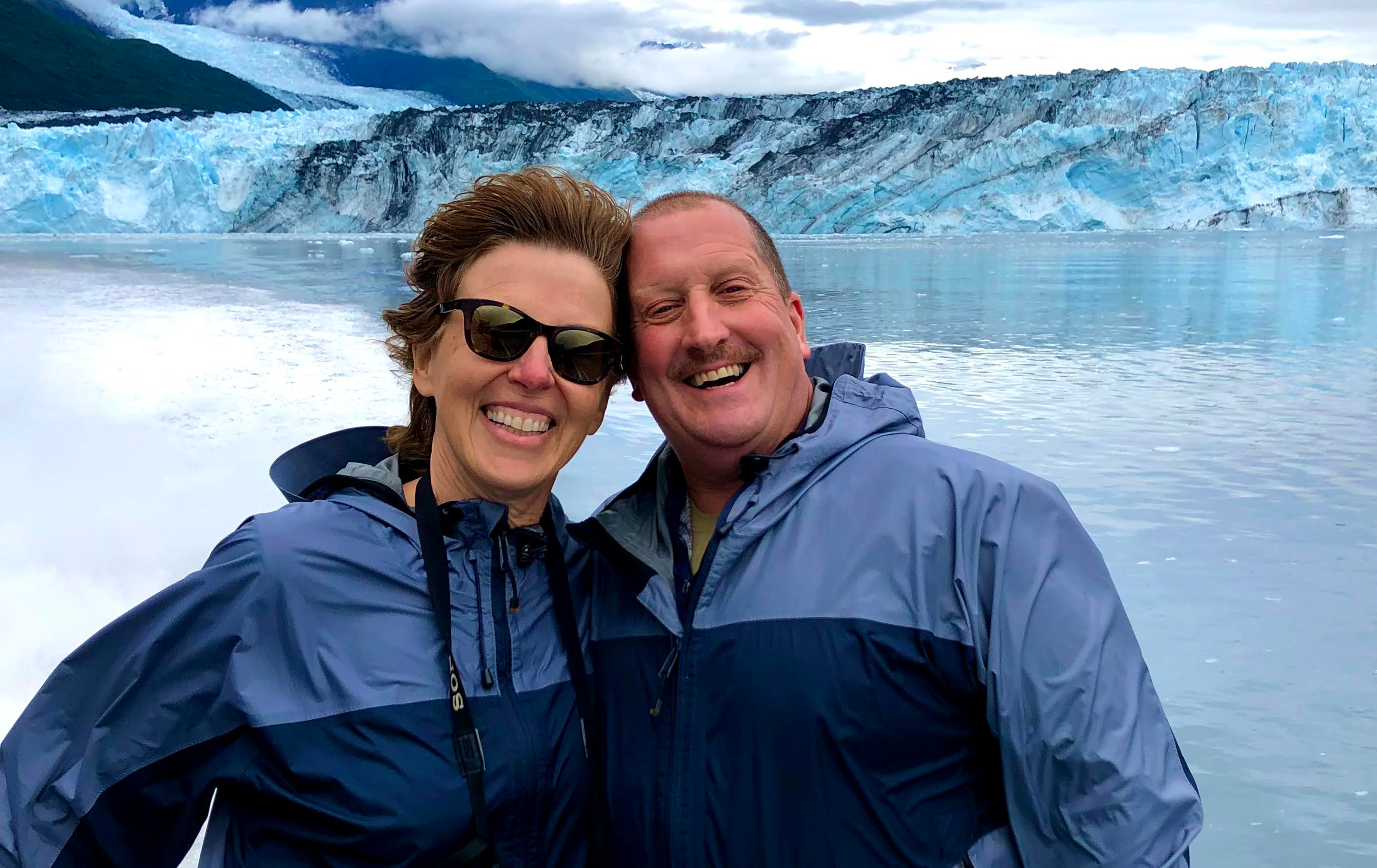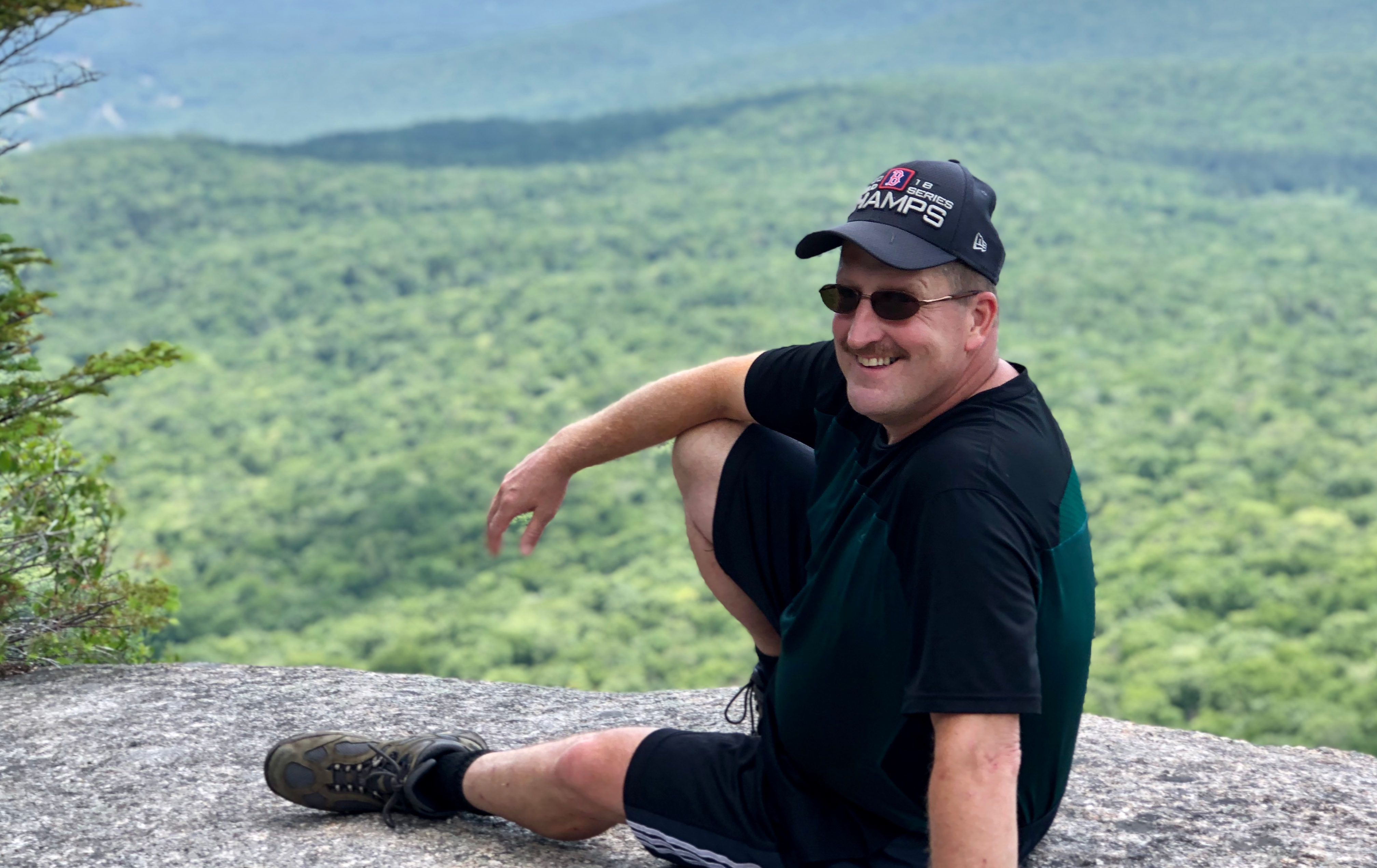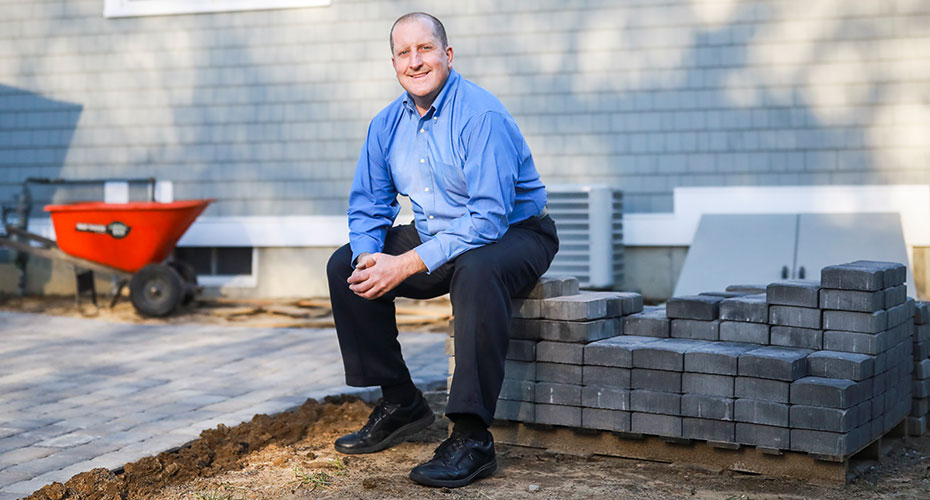Feb 20, 2023
Joe’s journey
Over the past two years, many of us have grappled with a sense of loss, as well as a newfound sense of gratitude for what matters in life. Joe Montminy was diagnosed with early onset Alzheimer’s in 2017 at age 54, an experience that has given him special insight into both the nature of loss as well as the extraordinary gifts of love, family and the natural world. He is sharing his journey and its lessons with Coverage writer Rachel Coppola.
It’s been nearly five years since I was diagnosed with early onset Alzheimer’s disease at age 54 and my life changed in an instant.
My neurologist could not predict the exact trajectory of my disease, but she said that based on a normal progression, I might have about 10 more years to live. In the first three to five years, I would see slow declines, she said. After that, I could expect my memory and cognitive function to deteriorate to the point where eventually, I would need to live in a nursing home because I would not be able to take care of myself or recognize the people that I love.
I’m grateful that, for now, the disease has not progressed as significantly as anticipated.
And while I would never wish to have this disease, it has given me a new lens through which to see my life. I have learned what’s important.
I am much more aware of how precious time is and how I want to spend it. I don’t sweat the small stuff. I am thankful for each day that I still feel like “me”.
This past year, I worked to raise awareness of Alzheimer’s disease and speak up for those who are living with the disease who are not able or willing to speak for themselves. I also focused more on enjoying every day.
I took a “bucket list” trip to Alaska in August where I saw Denali, brown and black bears, moose, sea otters and sea lions, puffins, fin and humpback whales, bald eagles, lots and lots of salmon, amazing waterfalls, and more than 50 glaciers.

I also had lots of great times in my own backyard.
I spent time with my wife and two older sons – going out to eat, playing cards, bowling, hanging out and talking. I attended UConn women’s basketball games with my wife and friends. I put the finishing touches on a large renovation project of our new home in Plymouth, Mass., and helped friends and neighbors with home improvement projects of their own. And I spent countless weekends with friends and family playing cards and outdoor games, telling stories, hiking, and doing many other group activities.
Beyond these amazing experiences, I took advantage of many wonderful opportunities to get involved in Alzheimer’s advocacy and to educate others about this disease, including health care providers, caregivers and lawmakers.
I was honored to be appointed by the U.S. Department of Health and Human Services to the National Alzheimer’s Project Act Advisory Council, which advises the department and U.S. Congress on how to improve the lives of people with the disease and their caregivers.
I was selected to join the National and MA/NH Chapter Alzheimer's Association Board of Directors and the National and New England Alzheimer's Association Early Stage Advisory Groups, which work to provide and enhance care and support for those living with the disease, advance public policy, strengthen diversity and inclusion so that everyone is represented in decision-making, grow awareness and accelerate research. These organizations provide valuable resources to anyone living with Alzheimer’s, as well as our loved ones.
I have spoken multiple times to my state congressional representatives regarding the importance of supporting Alzheimer's disease legislation. I also testified before the Massachusetts Joint Committee on Elder Affairs on providing nursing home level care at home to those living with early-onset Alzheimer's who need this level of care.
I have spoken at multiple conferences about what it is like to live with early-onset Alzheimer's disease, the challenges and emotional impact of living with it, and I’ve provided coping strategies that can be used to help us maintain our quality of life. There are many financial and emotional challenges that we must deal with. It's important that others realize how difficult it is to live with this disease.
I want to share my story openly and work to help everyone with Alzheimer’s because I know many others with the disease cannot. And I want to do it now.
Two parts of my world collided in a wonderful way the weekend of Sept. 25, when 50 friends and family members joined me for the Walk to End Alzheimer’s in Plymouth, which raises money to advance care, support and research. After the walk, our crew held a cookout and then boarded a harbor cruise and enjoyed an ice cream sundae bar on deck. It was a spectacular weekend of fund- and fun-raising, after nearly two years of not being able to gather due to the pandemic.

It’s true that this disease and other terminal illnesses rob you of many important things in life. But I choose instead to see what it has given me: The opportunity to help others. The chance to understand what truly matters in life. And the freedom to enjoy every day I have – with the people I love.
Read the first chapter of Joe’s Journey here.
COVER PHOTO BY NICOLAUS CZARNECKI

